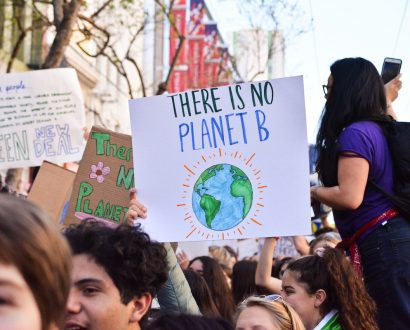6 simple hacks to reduce your carbon footprint

In the fight for climate preservation, every action counts.
If you want to live a little more sustainably in 2020, here are some small, easy steps you can take to reduce your personal carbon footprint. (You can calculate your footprint here.)
Eat less meat and dairy
The single most effective action you can take to combat climate change is to stop eating meat and dairy products. New research shows that without meat and dairy consumption, global farmland use could be reduced by more than 75% – an area equivalent to the US, China, European Union and Australia combined – and still feed the world. If you’re not keen to go vegetarian straightaway, limiting your intake can still make a big difference. Why not try Meatless Monday or become a weekday vegetarian?

Unplug your devices
If you don’t unplug your devices after switching them off, you’re one of the many victims of ‘vampire power.’ While you’re out and about, everything from your TV to your microwave is sucking up energy. In the US alone, standby power is responsible for draining up to US$19 billion in energy every year.
Switch to LED lights
Estimates suggest that almost half of our carbon footprint is due to electricity and about a quarter of that is due to lighting alone. Residential LED lights use at least 75% less energy and last 25 times longer than incandescent lighting. They also emit less heat and have a longer life expectancy of around 30,000 hours.
Avoid ‘fast Fashion’
The environmental and ethical implications of ‘fast fashion’ are no secret. As a whole, the industry is responsible for 92 million tons of waste dumped in landfills every year. Selling an endless cycle of trend-based clothes at extremely low prices is not only detrimental to the environment, but also relies heavily on child labour. So, next time you decide to replenish your closet, head to a second-hand store or buy from a sustainable fashion brand. Chances are, their higher-quality garments will last longer too; buy well, buy less.

Fly carbon neutral
Worldwide CO2 emissions from commercial flights are rising up to be 70% faster than predicted by the UN. While trains are an eco-friendlier option, they’re not always available or practical. So, next time you book flights online, look for the option to offset your share of carbon emissions. It’ll only cost you a few extra dollars, but it’ll go a long way.
Choose local, seasonal and organic produce
Where possible, try to eat local, in-season produce. Organic produce is free from toxic pesticides and it’s picked at the peak of ripeness – so it’ll likely taste better than what you find in the supermarket and it’ll do less harm to the earth. Eating locally reduces the carbon footprint created by shipping foods from elsewhere, plus it’ll give local farmers and growers a helping hand. To avoid food waste, freeze overripe produce, create a compost pile or donate what you won’t use.